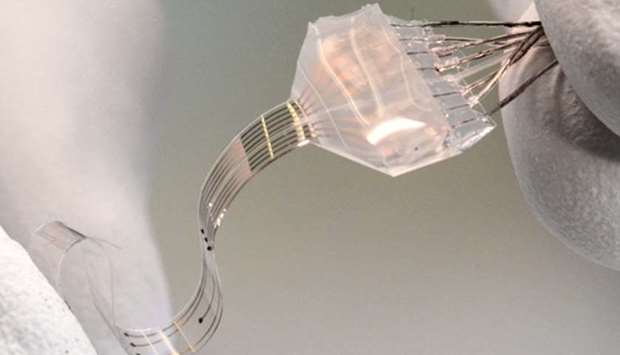Scientists are creating 3D-printed brain chips which could be used to treat nervous system conditions, including paralysis, by detecting and firing electrical signals.
The chip has been developed and successfully tested on animals, and researchers are now hopeful it can be adapted for use in humans.
An international team of engineers and neuroscientists at the University of Sheffield (UK), St Petersburg State University (Russia) and Technische Universitat Dresden (Germany) say it will also be able to connect to a computer and offer a host of next-generation medical benefits.
In the new study, researchers used a multi-layer, soft chip to stimulate the damaged spinal cord of cats, rats and zebrafish.
The study also shows the chip is effective on the surface of the brain, peripheral nerves and muscles.
While the spinal cord remains the primary focus, the technology could allow for therapeutic developments for conditions affecting these tissues.
Professor Ivan Minev, one of authors of the study from the University of Sheffield, says the research demonstrates how 3D printing can be benefit researchers.
"The power of 3D printing means the prototype implants can be quickly changed and reproduced again as needed to help drive forward research and innovation in neural interfaces," he says.
The vision relies on implants that can sense and supply tiny electrical impulses in the brain and the nervous system, the experts said.

